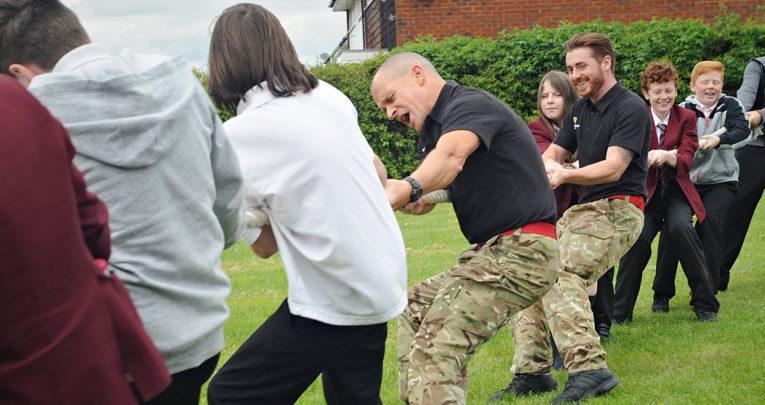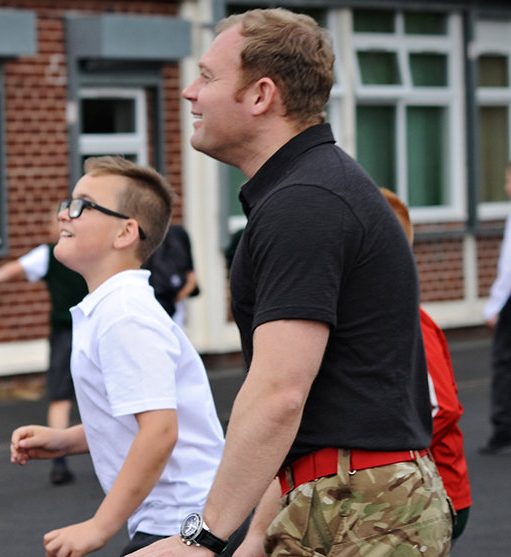Why Schools Have a Vital Role To Play In Character Building

Mike Hamilton explains how character education can help bring out the best in children In late 2014, Nicky Morgan set out her vision for education. There was much talk of ‘results’ and ‘opportunity’, but perhaps the most interesting aspect of her planned reforms having been appointed education secretary was her focus on teaching “Character, resilience […]

Mike Hamilton explains how character education can help bring out the best in children
In late 2014, Nicky Morgan set out her vision for education. There was much talk of ‘results’ and ‘opportunity’, but perhaps the most interesting aspect of her planned reforms having been appointed education secretary was her focus on teaching “Character, resilience and grit.”
This wasn’t just vague talk. The government has since invested £5 million in character education – in debating charities, in the sports premium, in the National Citizen Service. It’s all about building well-rounded young people, who are confident and equipped with the skills needed to succeed in whatever they choose to do.
Character counts
Character drives everything – achieving goals, building strong personal and working relationships, and being accepted in society – and these, in turn, affect success in all areas of life. The CBI believes “Resilience, respect, enthusiasm and creativity are just as important as academic or technical skills”, but according to the British Chamber of Commerce, two thirds of companies believe schools are still failing to prepare students for the working world.
Whether it’s in the workplace or at home, character counts – everywhere, all the time. When you are young, character can be taught, and this vital skill must be instilled throughout the education system. Employers can teach practical skills, but it can’t be their job to teach character. By then, it’s too late.
So what can schools do to ensure their students have the character to succeed when they leave full-time education?
Role models
One thing that can’t be underestimated is the power of role models in schools. Modelling outstanding behaviour inspires children to be helpful and kind to others. It teaches them to have a positive attitude, and builds self-awareness and a strong moral compass.
This also links in with the importance of positivity. If young people are in contact with strong positive role models who always see the best in people, it can spread a powerful message. Students need to be encouraged, regardless of their ability, if they are to build character and resilience. Even if they aren’t a star pupil, if they are someone who gets on with things and does their utmost in the middle ground, positive encouragement will help them realise how well they are doing.
A vital step in building character and resilience is ensuring that children know that it’s okay to make mistakes if they learn from them. Life is all about trial and error. A person’s character is shown by their ability to recognise a mistake, analyse it and use it to go forward.
It’s important that the education system can instil this from a young age. For example, setting an impossible group task is a great way to check resilience and to watch the stronger team members encourage those who want to give up. Once the team has tried and failed, and are still racking their brains, introducing a new factor to make the task possible is a huge boost which acts as a reward for their determination.
Two-way communication
The final and most important factor in building character is two-way communication. This is a vital life skill, as making conversation and asking open questions is how you build a rapport with others. Teaching children good communication skills from a young age can go a long way to building confidence and character. It can also be used by teachers and teaching assistants to build trust, address behavioural issues and encourage children to self-reflect, which in turn aids their development.
Building character in children can certainly be challenging, but it is achievable. The good news is that there is support available for schools to help students reach their potential. There are specialist service providers that work in partnership with schools to build character and resilience, which are having a positive and measurable effect.
With the right attitude from staff, and a real commitment to the idea, schools can help young people build character to give them the best start possible, leaving them ready to meet the demands of an increasingly competitive world.
Mike Hamilton is the director of Commando Joe’s – an education provider that combines health and wellbeing with education delivered by ex-military instructors to inspire and motivate children to realise and reach their full potential. For more information, visit www.commandojoes.co.uk or follow @CommandoJoes











